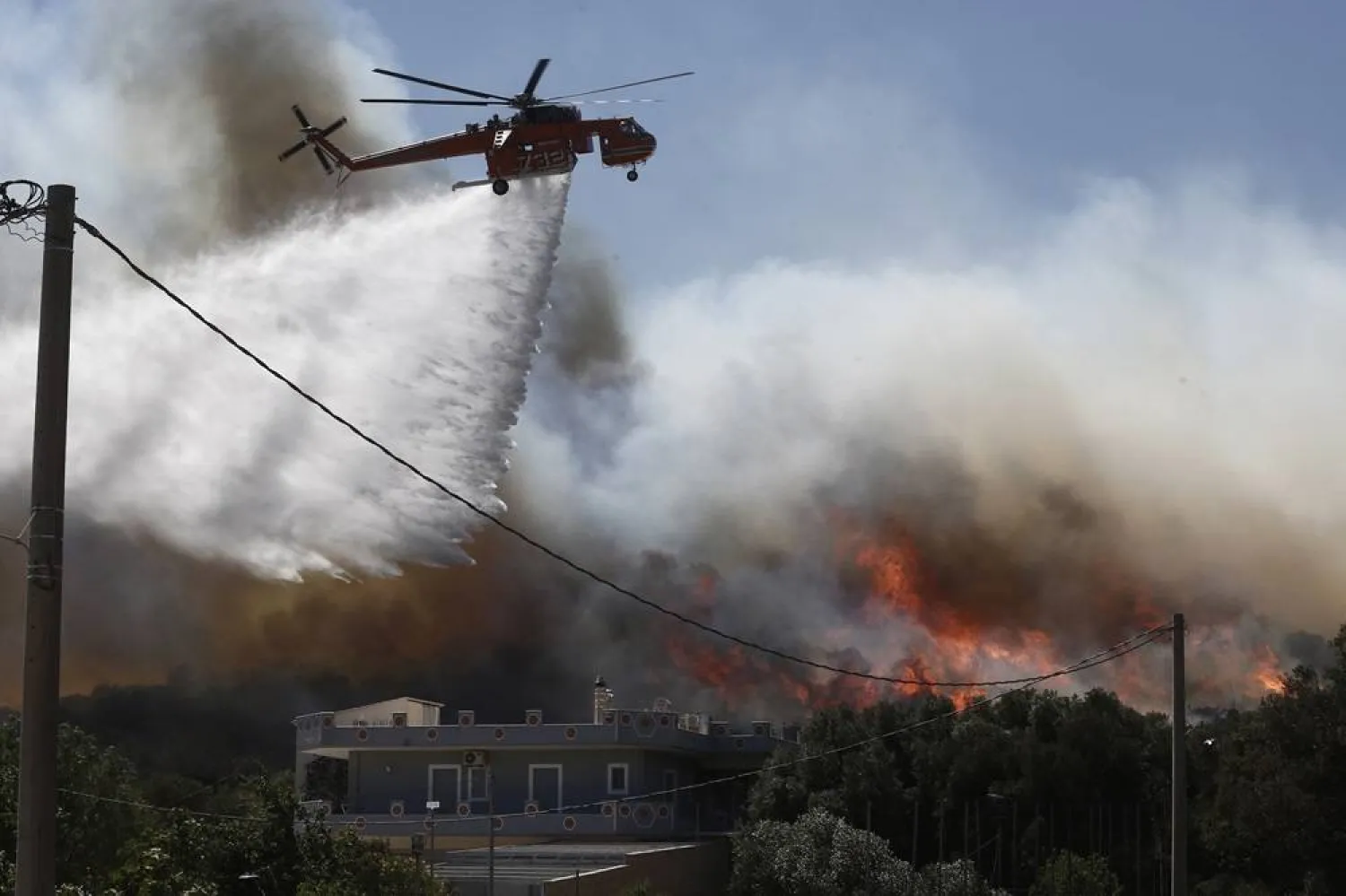Greek firefighters appeared close to containing a wildfire near Athens on Wednesday that forced dozens to flee their homes, and authorities now believe the fire was the result of arson as well as hot, dry conditions.
Traffic was suspended along a main highway connecting Koropi to Athens' southern suburbs, about 30 km (19 miles) south of Athens.
There were no reports of deaths or injuries. A fire service official said the intensity of the blaze had eased but it was not out, noting that high winds carry sparks that can quickly open new fronts.
Civil protection minister Vassilis Kikilias said officials have verified indications that the fire near Athens was the result of arson as well as extreme weather conditions.
He said there is a video and photos of the suspected arsonist and authorities will publish them.
In Koropi, a storage facility and at least one home were burned, and flames crept into a boat dry dock and across fields of dry grass and olive trees. Authorities evacuated two nearby villages.
"I saw a lot of smoke behind our building, it was very close to us. It went around the hill and passed in front of us," local resident Anastasia Papadopoulou told Reuters.
Volunteer and professional firefighters dragged hoses over blackened fields in 35 degree Celsius (95 degrees Fahrenheit) heat.
Much of the area has had no rain for weeks, leaving large areas bone dry. Six firefighting planes, 16 helicopters, dozens of fire engines and more than 150 firefighters were dispatched to the scene, the fire service said.
Several hundred firefighters were deployed to battle more than 60 forest fires across the country, with 16 fires still active, including a big one in Peloponnese. High winds and hot temperatures will extend the risk into Thursday.
"Since noon we had a new fire breaking out almost every 10 minutes," Kikilias said.
After forest fires last year forced 19,000 people to flee the island of Rhodes and killed 20 in the northern mainland, Greece has scaled up its preparations this year by hiring more staff and increasing training.
Wildfires are common in the Mediterranean nation, but they have become more devastating as summers have become hotter and drier, which scientists relate to climate change.









